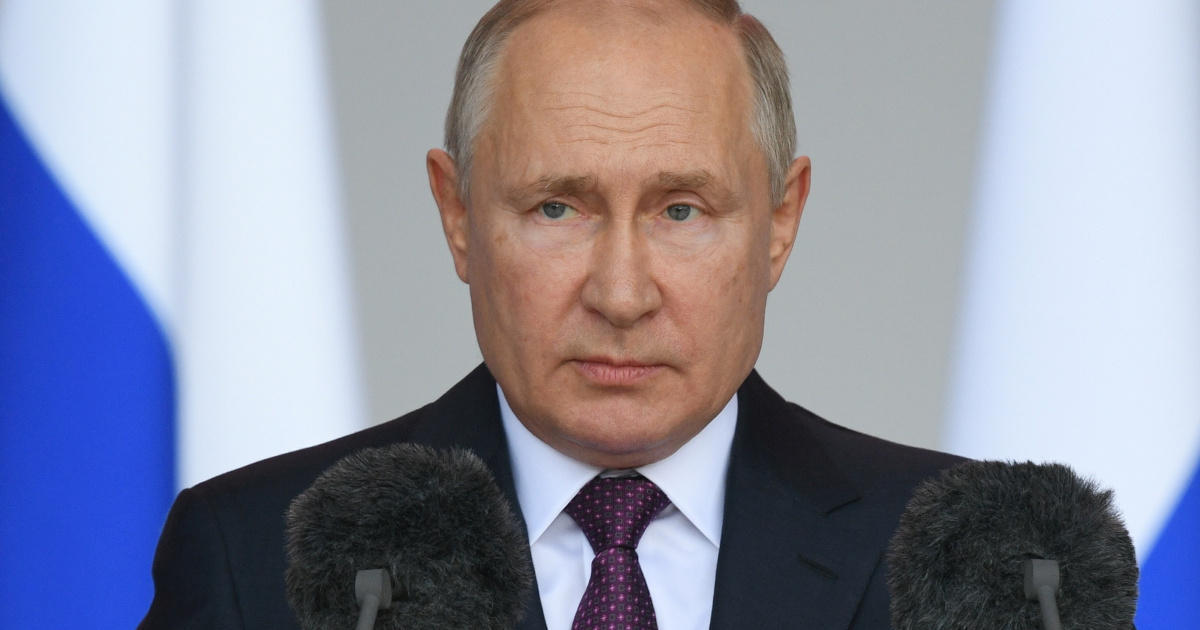
Russian president tells Central Asia leaders ‘extremists’ must be kept at bay following the Taliban’s takeover of power.
Russian President Vladimir Putin has told Central Asian leaders that it is vital to avoid any spillover of “radical Islam” into the region from Afghanistan, according to the Kremlin.
Addressing an online summit of the Collective Security Treaty Organization (CSTO) on Monday, Putin said it was important to keep “Islamist extremists” at bay following the Taliban’s takeover of power.
The CSTO’s emergency talks on Afghanistan were chaired by Emomali Rahmon, Tajikistan’s president, and attended by the leaders of Armenia, Belarus, Kazakhstan and Kyrgyzstan – all former Soviet republics.
The military alliance voiced concerns that ISIL (ISIS) still had a foothold in Afghanistan and remained a threat to the wider region, the Kremlin said.
It added that the six leaders had agreed to coordinate action on the unfolding situation in the country, including in response to any emerging threats.
Kremlin spokesman Dmitry Peskov said the group discussed the implications of “another civil war in Afghanistan”, but added: “No one is going to intervene in these events.”
His remarks came as a Taliban spokesman said on Monday that the group had surrounded Panjshir, the only one of Afghanistan’s 34 provinces that has not yet fallen to it.
Several Taliban opponents have gathered in the area, which lies north of the capital, Kabul. They include Amrullah Saleh, vice president of the now-toppled government who claims to be the acting president, and Ahmad Massoud, son of the slain commander of the anti-Taliban Northern Alliance coalition that partnered with the United States to drive the group from power in 2001.
Putin raises ‘refugee’ fears
Putin had earlier raised his concerns regarding the situation in Afghanistan, warning last week that a “collapse” in the security situation could see “terrorists” entering neighbouring states “under the guise of refugees”.
“Our Western partners are persistently raising the question of placing refugees in Central Asian countries before obtaining visas to the United States or other countries,” he told a meeting of officials of Russia’s ruling United Russia party on Sunday.
“But who is among these refugees? How can we know?”
Putin estimated that “hundreds, even hundreds of thousands, or maybe even millions” of people might want to flee Afghanistan, where Afghans and foreigners continue to descend on Kabul’s Hamid Karzai International Airport in desperate bids to flee the Taliban’s takeover.
Meanwhile, hundreds have fled to Tajikistan and Uzbekistan, which share borders with Afghanistan.
Moscow is keen to ensure that the instability in Afghanistan does not spill over into Central Asia, part of the former Soviet Union it regards as its own back yard, and that the region does not become a launchpad for other armed groups.
It has praised the Taliban’s conduct since it seized power, saying there was “no alternative” to the group and resistance to it would fail.
But Moscow has stopped short, for now, of recognising the Taliban as the legitimate rulers of the country and still officially considers the group a “terrorist” entity.






